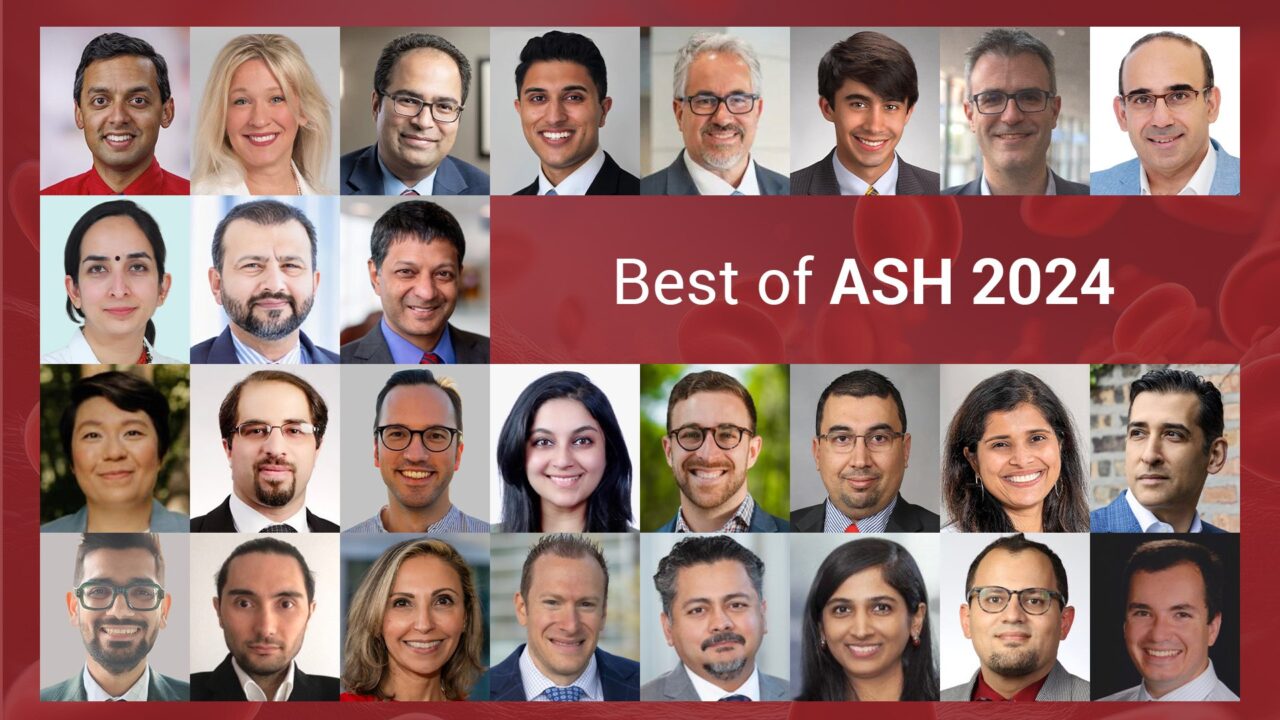The 66th ASH Annual Meeting and Exposition was held from December 7-10, 2024, in San Diego, California.
It brought together over 30,000 health professionals, clinicians, researchers, educators, and industry leaders from around the world. As the most comprehensive hematology event of the year, the meeting offered a unique opportunity for attendees to engage with the latest advancements in blood-related disorders, treatment innovations, and groundbreaking research.
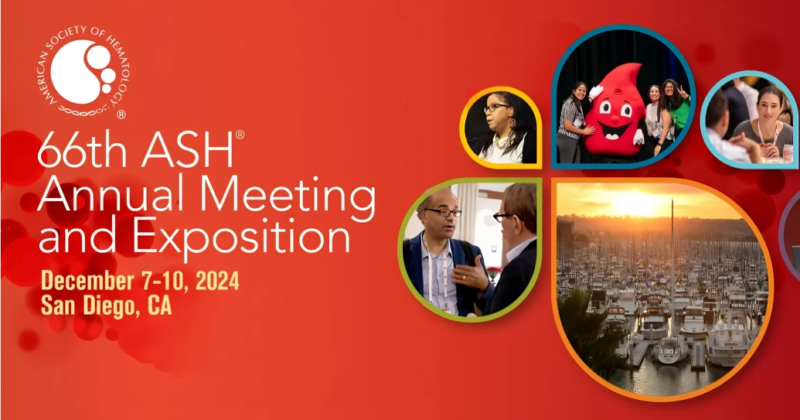
The conference featured a wide range of sessions, including scientific presentations, educational symposia, and hands-on workshops, designed to foster collaboration and knowledge exchange across various sectors of hematology. Participants had access to cutting-edge research findings, emerging therapies, and best practices in patient care, making it a vital event for professionals looking to stay at the forefront of the field.
Doctors and healthcare professionals shared their highlights on social media
“Always great to catch up with dear friends Ken Anderson and Nikhil Munshi.
25th year of collaboration for me with these two greats.”
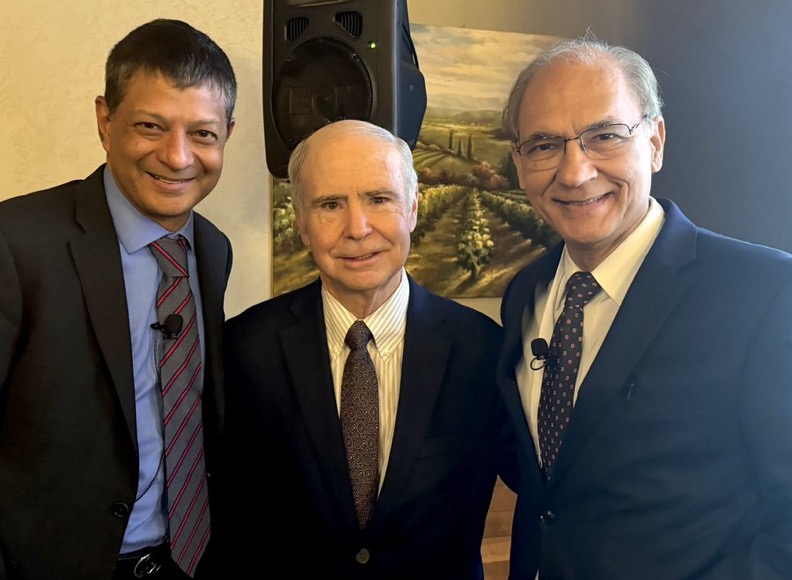
“Kudos to our faculty speakers and to all who attended and supported our ASH Education Session on Rare Myeloid Neoplasms yest featuring our talks on BPDCN, CSF3R-expressing malignancies and acute leukemia of ambiguous lineage!!”
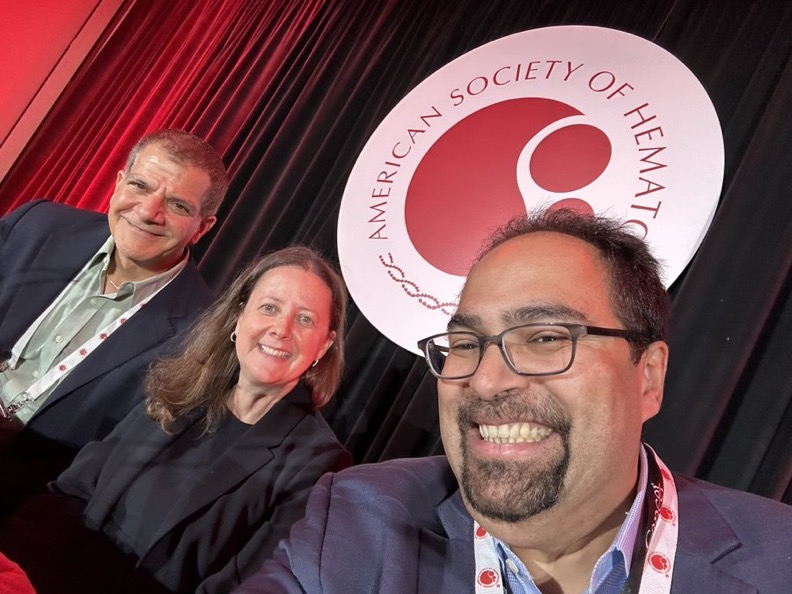
“ASH24 and the best for last! Our fearless US MM consortium leader Doris Hansen presenting the most sophisticated analysis of cilta-cel vs ide-cel in RW practice I’ve ever seen!
Yes, an RCT will be ideal – but will never happen this decade. So what do our current data show.”
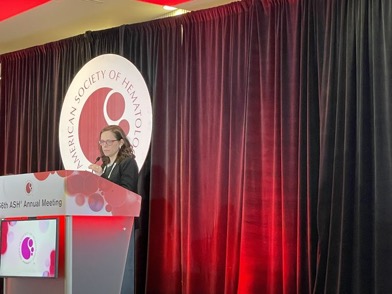
“This is likely the breaking news of the day at ASH24
Aquila soars high,
Hope in smoldering shadows,
New light breaks the dark.”
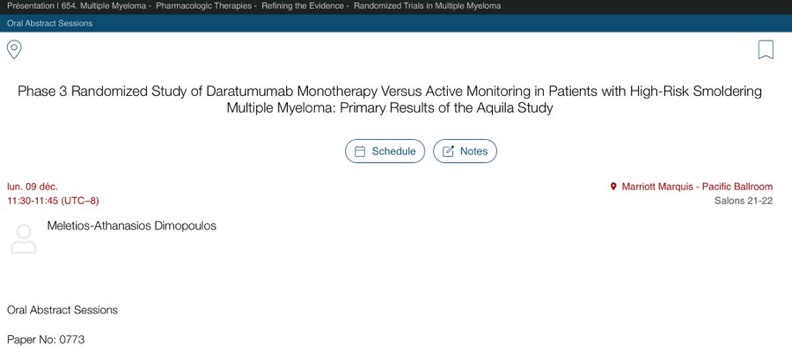
“Very interesting study and exceptional presentation by Daniel Pollyea on Aza/Ven frontline Tx in younger adults at ASH24. Intensive chemo for all younger fit AML may need to be redefined. Kudos to Daniel Pollyea et al for conducting this important study.”
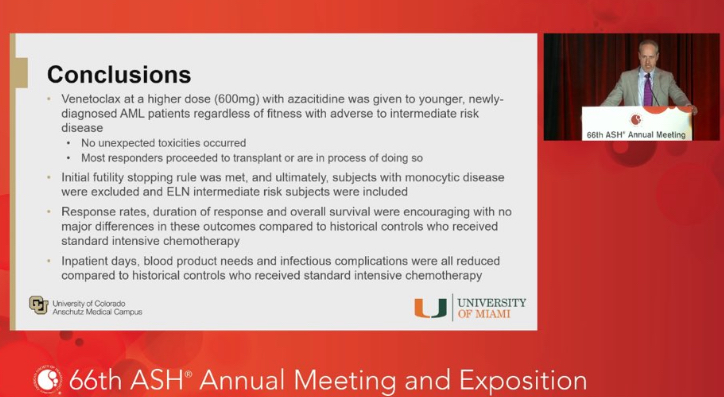
“Phase 1 study of oral AZA+cedazuridine in MDS, MDS/MPN presented by Dr. Garcia Manero
AE’s and efficacy comparable to IV AZA.”
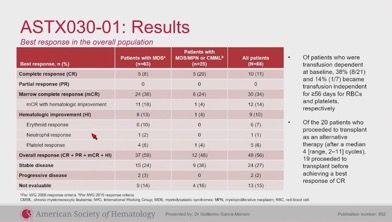
“ASCT is dead! Long live ASCT!
Headline results of updated TRIANGLE study results from Martin Dreyling EMCL network
Overall survival benefit ~10% for both ibrutinib-containing arms over ASCT alone
Little benefit to ASCT.
Practice-changing result.”
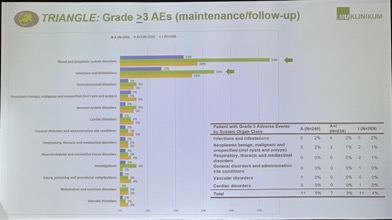
“No hematology without friendship.
Thanks ASH for uniting so many young hematologists worldwide.”
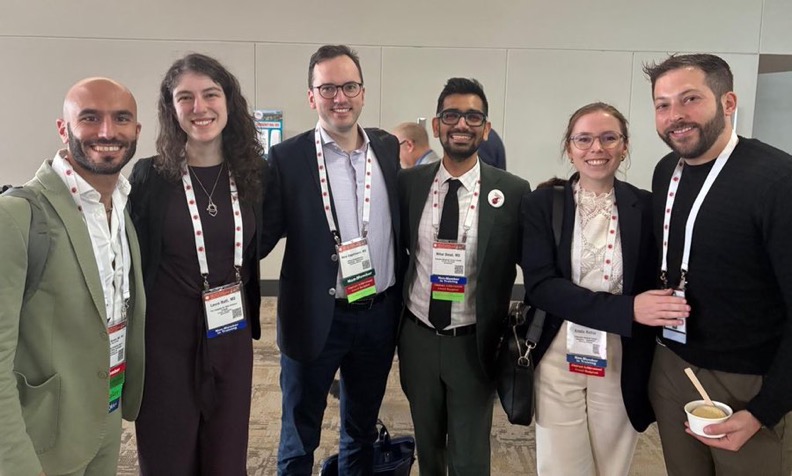
“Very rich presentation on types of prior Rx impact on imetelstat response as 2L for LR-MDS
– Response was similar regardless of prior Rx
– prior HMA had low ORR
– number of prior Rx impacted ORR.”
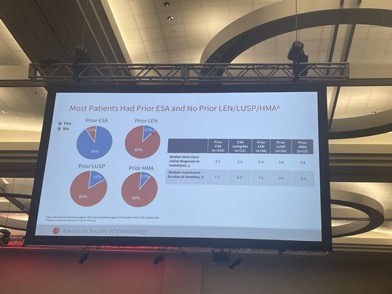
“Falchi: Epcor+R2 R/R FL, longer FU
– 111 pts, med FU now 2y
– v high responses: ORR 96%; CRR 87%
– Prolonged remissions in all risk groups
– No new safety signals
Randomised study ongoing.”
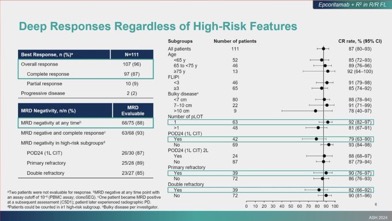
“Honorable mention Major PROsASH: long-term PROs aHUS
– 55 pts, 82% current eculizumab, 22% R/R
– hx of dialysis did not affect PROs (hx of relapse did)
– worse cog fxn than general pop
Great to know we can use PROMIS PROs in these cohorts.”
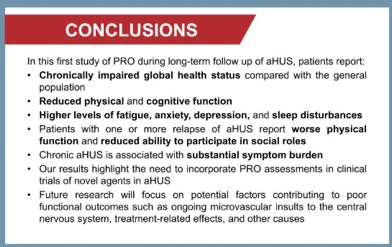
“Dr. Dipti Jain delivering the prestigious Ham- Wasseeman lecture.”
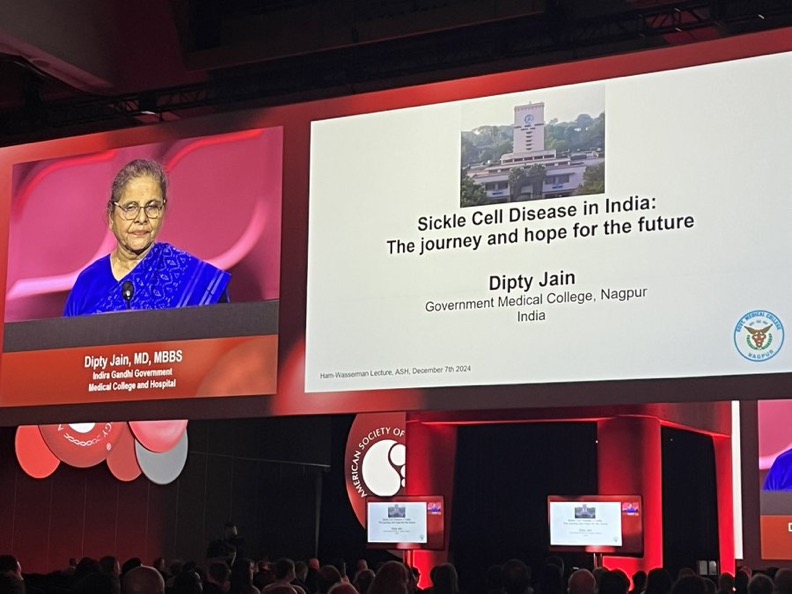
“Captured some good shots at ASH24. We are hemeOnc buddies.”
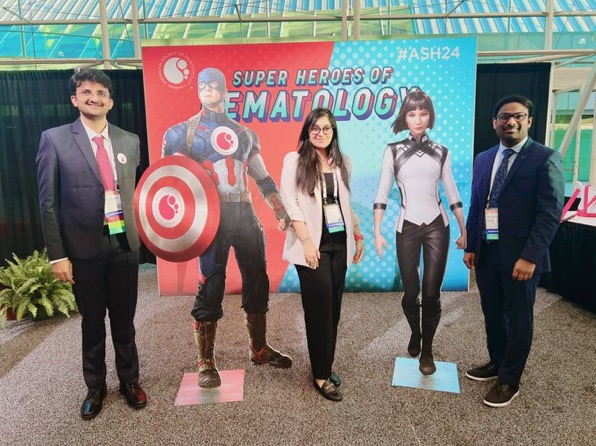
“Fantastic presentation by Curtis Lachowiez showing the significant prognostic influence of monocytic phenotypes in pts treated with Aza/Ven. In NPM1 wt, monocytic phenotypes led to significantly worse outcomes. Differentiation state should be incorporated into our risk scores.
Proud to work on this impactful project along with Daniel Peters, UNC Lineberger and Daniel Pollyea.”
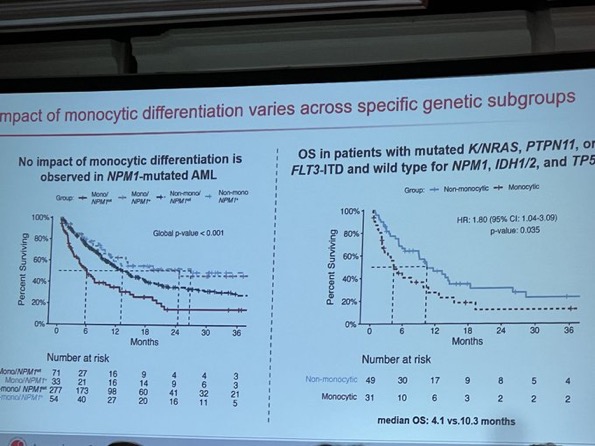
“Oral Amyloidosis: Venetoclax-Dex in newly diagnosed AL amyloid
Surprising to enroll pts quickly
Methods and results- responses was not happening in all, 6 pts with no CR heme out of 39 (2 of which with no response).”
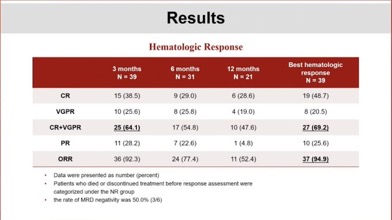
“Immune profiling. Amazing data by the master! Thanks to Bruno we have immune markers to predict CART outcome.”
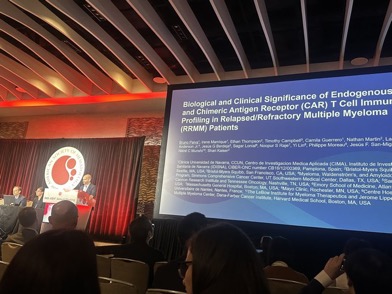
“The chairs are ready to do ASH24 BCMA Targeting Oral Session.”
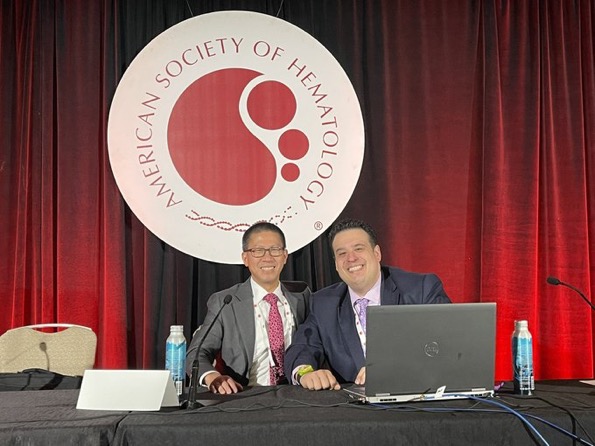
“Dr. Rachael Grace of DFBC Pediatric Care presents a comprehensive analysis of pedi AIHA. Half of patients will have one episode. For the it is a recurrent condition. With 70% untested, there is a need for more universal genetics to help stratify risks/treatment.
At an ASH24 that saw the wonderful blinatumomab results, it is frightening that pediatric AIHA can have mortality rates approaching 10%. We need better diagnostics, understanding and treatments.”
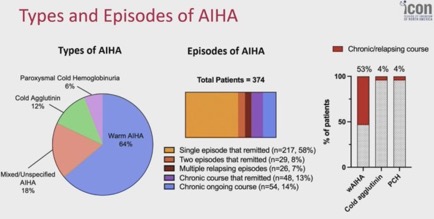
“Incredibly proud to be on this wall with these inspiring people. The future of hematology is strong, diverse, beautiful and hopeful. The ASH Career Development Awards foster growth and amazing connections. Honored to be a part of this network.”
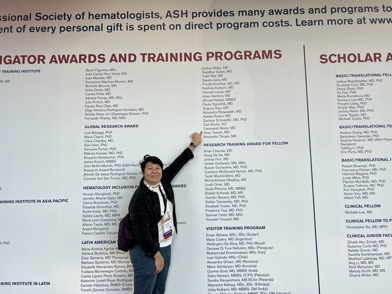
“The DREAMM-7 trial clearly demonstrated a PFS advantage for BVd over DVd, and now we are witnessing an OS improvement! will Belantamab return? And which LOT this combination will be used?
Full disclosure I am a co-author for the DREAMM-7 study.”
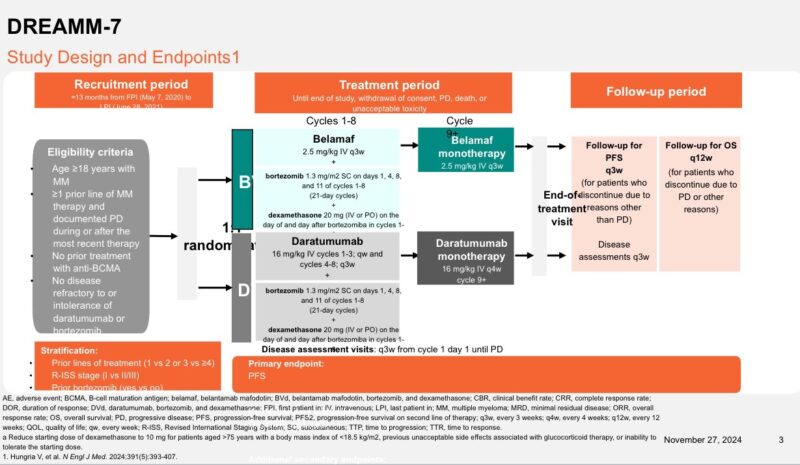
“Amazing ASH24 for team at Atrium Health Levine Cancer and Wake Cancer over 130 abstracts, invited presentations and the start of our own Belinda Avalos as ASH President!! ASH kudos to amazing job running meeting by ASH staff!”
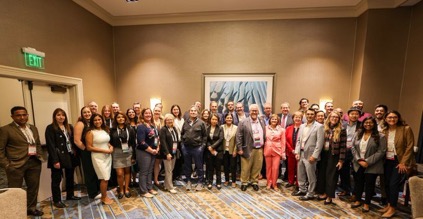
“Ahead of SMM RCT oral (now NEJM paper). I caught up with Vincent Rajkumar of Mayo Clinic who shared the data annd its implications on clinical practice for Healthcare Unfiltered audience annd others.
Kudos to all investigators on this critical milestone. Must watch.”
“Evaluation of $AZN AZD0486, a novel CD19xCD3 TCE in R-R DLBCL in an ongoing FIH phase 1-High CRs seen in CAR-T-naive and CAR-T-exposed patients.
only n=5 CAR-T-naive at 7.2mg makes it hard to understand if the dose response is the pot. bell shape curve expected with bispecs
Evaluation of $AZN AZD0486, a novel CD19xCD3 TCE in R-R DLBCL in an ongoing FIH phase 1-High CRs seen in CAR-T-naive and CAR-T-exposed patients, only low Gr (1/2) CRS, still some Gr3 ICANS
looking good overall.”
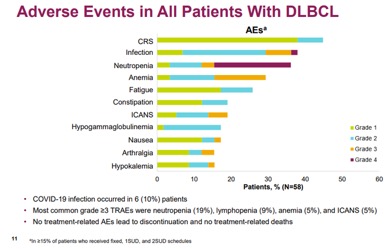
“BCL2 inhibitors in myeloma and Amyloidosis? Yes please! Lisaftoclax in RRMM.”
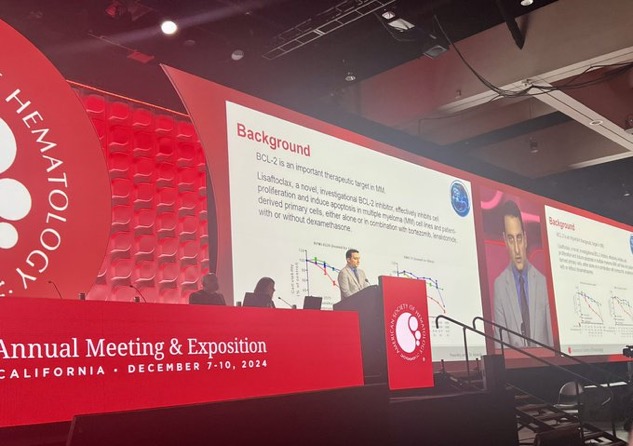
“It’s always great catching up with friends at ASH24.
Princess Margaret Cancer Centre colleagues who have now moved to Mayo clinic and will soon be back to Saudi Arabia.
Some of the brightest and kindest colleagues I’ve worked with.”
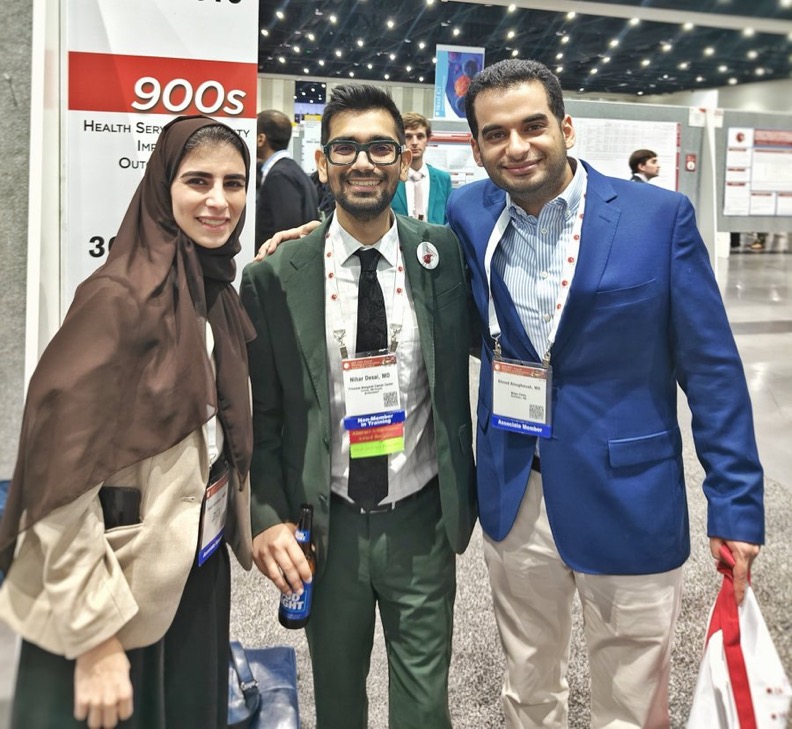
“What a fantastic ASH24 Presidential Reception celebrating all the wonderful science in hematology and Bollywood!”
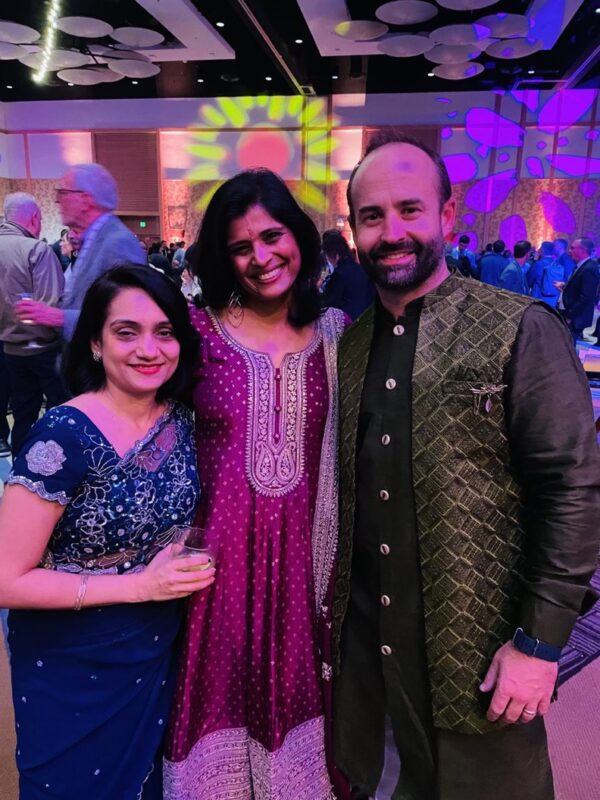
“That’s a wrap! Thanks ASH Hematology for encouraging these conversations as always (>25K tweets!) – Twitter is always where I learn the most from my colleagues and realize which sessions I missed.
The Leukemia and Lymphoma Society – looking forward to ‘competing’ again next year!”
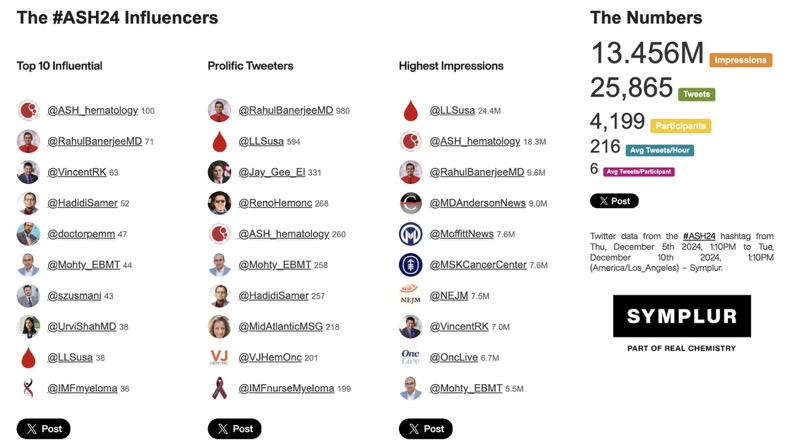
“I. Love. This.! ASH Kudos to ASH Hematology team for an amazing annual meeting!!
I’ve been ASH’d. It’s a good thing.”
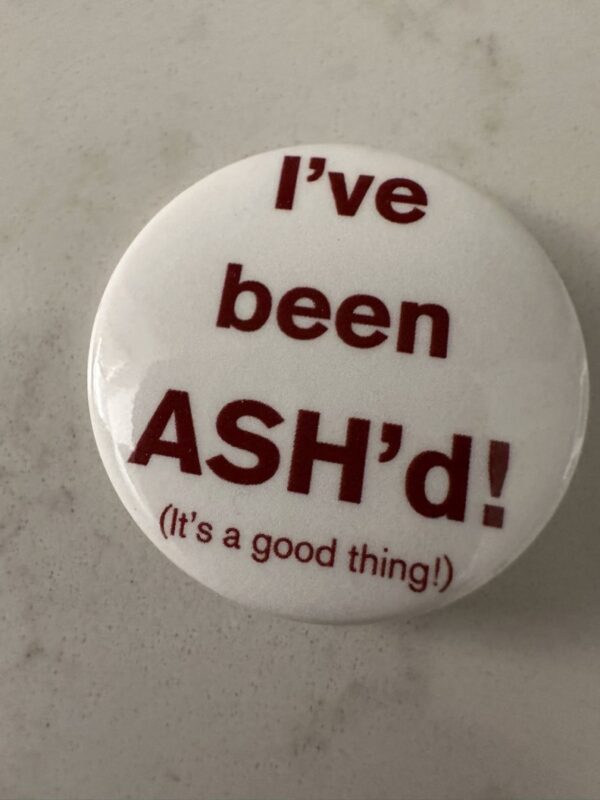
“It was an honour to receive the ASH24 abstract achievement award for 3 of my abstracts.
The alloBMT team Princess Margaret Cancer Centre had 2 oral presentations + 9 posters to present. I’m proud to work at one of the largest transplant centers in the world with the kindest colleagues.”
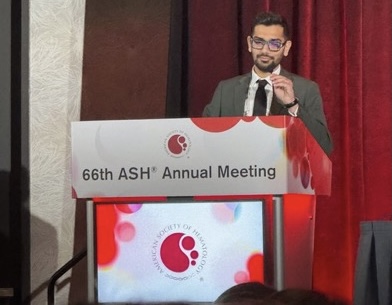
“Farewell ASH24. It has been a real pleasure, a great source of information, and an amazing opportunity for collaborations.
I’ve enjoyed sharing my experiences, and I only regret I could not share even more of the amazing hematology with everyone.”
“A brief thread on gene therapy for Hemophilia A (HA) and B (HB).
I am happy to share our systematic review now out in Blood Advances, so let’s discuss gene therapy for hemophilia.
Some figures from which were features in the ASH24 program!
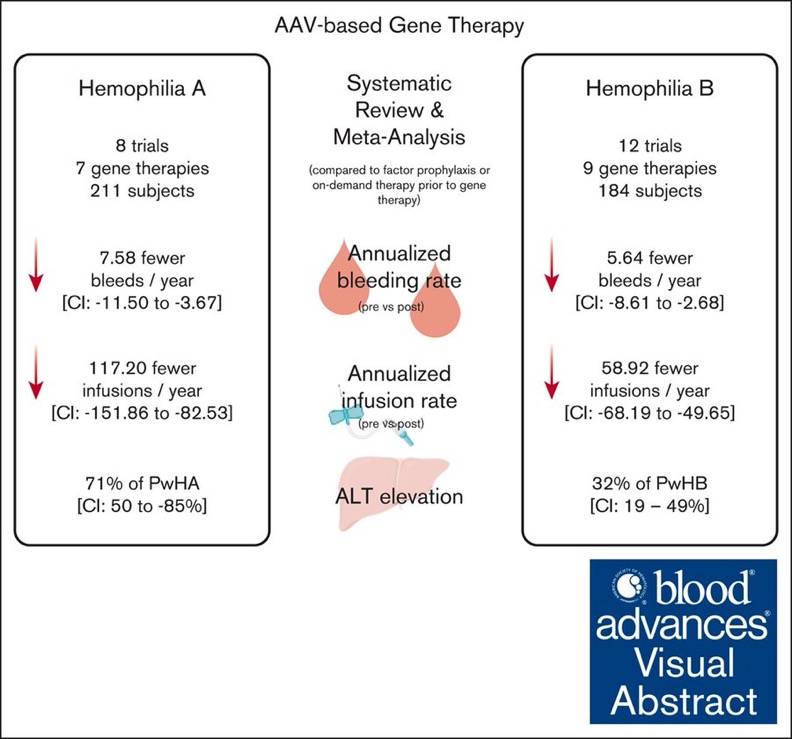
We show point estimates of the efficacy of gene therapies on annualized bleed and infusion rates
Relative to factor prophylaxis (pre/post comparison), gene therapy reduces bleeding rates
Heterogeneity is primarily driven by a few phase 1 studies with outlier effect sizes.

The notable liver toxicity rates vary markedly across trials, probably due to vector dose and immunosuppressive prophylaxis
Trials also used different cutoffs for what was considered liver toxicity
For examples, Hem B trials:
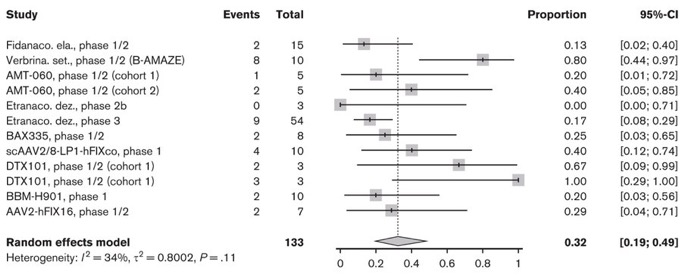
Finally we discuss the durability of gene therapies
– HA: 55.8% of their peak FVIII level at 24 months
– HB gene therapies: 95.7% of their peak FIX level at 24 months
These are obviously crude measures but do highlight the difference in shared decision-making between Hem A and B.
What needs to improve before gene therapies can become more widely adopted?
Most trials exclude PwHA/B with anti-capsid Ab or inhibitors. Anti-AAV5 Abs led to exclusion of 14% of the potential population in GENEr8-1. Eligibility needs to widen.
Prevention and management of anti-capsid immune response, which is most notably hepatotoxicity resulting in loss of transgene expression. A recent paper offered guidance on this.
Because the ultimate goal of gene therapy is one-time cure, long-term factor durability is crucial. Given the development of anti-AAV neutralizing antibodies post-gene therapy, we’d anticipate inability to receive another AAV-based therapy unless advancements overcome this.
Cost is critical. With gene therapies priced ~$2-3 million, it’s unlikely to be adopted outside of well-insured populations, which already have access to factor ppx and non-factor therapy. Most were not on emi (for HA) or EHL factor, so comparisons are indirect at best.
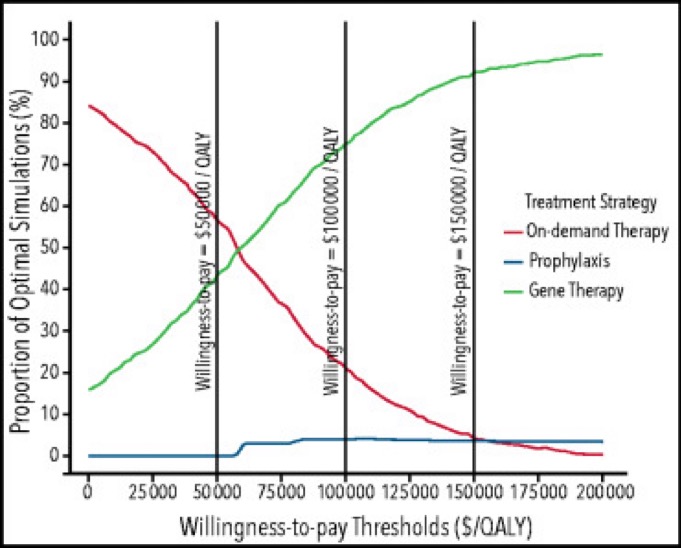
Time will tell on how well gene therapies can support PwH to achieving a hemophilia-free mind
It’s an exciting time to enter training as a classical hematologist!”
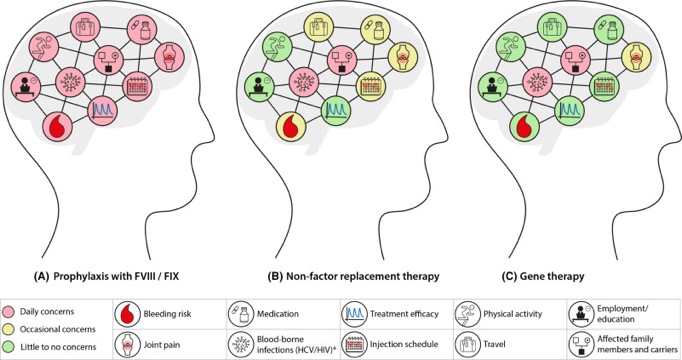
“Thank you Yelak Biru, Joseph Mikhael, IMF for supporting Medical Student Scholars! Congratulations to my mentee Divya Rath who presented our research to estimate the proportion(10-19%) of MM cases attributable to obesity.”
Further Reading:


